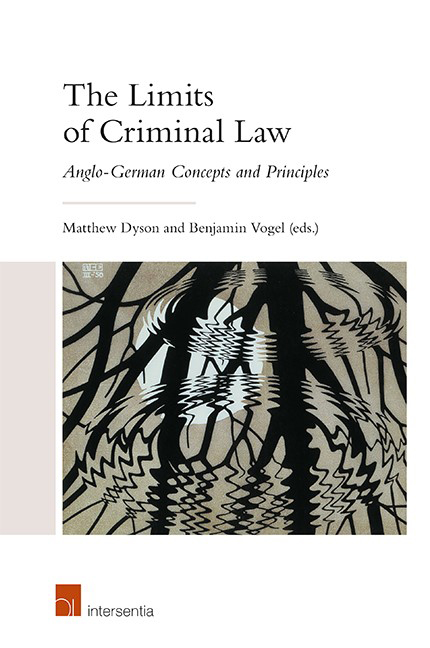Book contents
- Frontmatter
- Preface
- Contents
- List of Cases
- List of Abbreviations
- List of Contributors
- Chapter 1 Introduction
- PART I CORE PRINCIPLES OF CRIMINAL LAW
- PART II CRIME AND TORT
- PART III CRIME AND MEDICAL
- PART IV CRIME AND REGULATION
- PART V ADMINISTRATIVE SANCTIONS
- PART VI ALTERNATIVE ENFORCEMENT
- PART VII COUNTER-TERRORISM
- PART VIII CRIME AND INTELLIGENCE
- PART IX CONCLUSION
- Index
- About the Editors
Chapter 11 - Criminal Law in England and Wales: Just Another Form of Regulatory Tool?
Published online by Cambridge University Press: 11 February 2021
- Frontmatter
- Preface
- Contents
- List of Cases
- List of Abbreviations
- List of Contributors
- Chapter 1 Introduction
- PART I CORE PRINCIPLES OF CRIMINAL LAW
- PART II CRIME AND TORT
- PART III CRIME AND MEDICAL
- PART IV CRIME AND REGULATION
- PART V ADMINISTRATIVE SANCTIONS
- PART VI ALTERNATIVE ENFORCEMENT
- PART VII COUNTER-TERRORISM
- PART VIII CRIME AND INTELLIGENCE
- PART IX CONCLUSION
- Index
- About the Editors
Summary
The aim of this chapter is to examine criminal law as a form of regulation. How and when is it appropriate to use criminal law to produce or inhibit a particular kind of activity? Is criminal law simply one tool among many others that can be used for this purpose, or is it distinctive in some way? What makes a sanction criminal specifically? And if criminal law is distinctive, how do we decide when to deploy it and how do we ensure that it will be successful in achieving the aims we want?
INTRODUCTION: THE GENERAL UK REGULATORY LANDSCAPE
For historical reasons, English law does not draw sharp distinctions between ‘crimes’ and other ‘regulatory offences’. There are commentators who have advocated such a distinction but this approach was rejected by the Law Commission of England and Wales, in a report on Criminal Law in Regulatory Contexts. In doing so, they echoed the words of Glazebrook, that any attempt to make the distinction simply leads to a ‘litany of vague, overlapping criteria’. Instead, the Law Commission focused on the distinction between criminal and civil forms of regulation, where criminal sanctions are those which:
(a). must be pursued through the Crown Court or magistrates’ courts (the standard criminal courts);
(b). must be proved in such a court beyond reasonable doubt to have occurred (the usual standard of proof in criminal cases); and
(c). may (but need not) lead to the court imposing a detrimental, punitive measure on the offender simply because he or she is responsible for the occurrence of the conduct.
In terms of procedure, in some circumstances offences are dealt with by the ordinary courts, having been prosecuted by the Crown Prosecution Service (CPS), as is normally the case for criminal offences. In other instances the proceedings take place in the ordinary courts, but the prosecution is brought by a specialist regulatory body, although these bodies can also pass the prosecution on to the CPS. And in certain contexts there are individual schemes, specific to a particular activity, such as parking offences and civil penalties created and enforced by the Financial Services Authority which are subject to specially created appeal systems outside the traditional court system.
- Type
- Chapter
- Information
- The Limits of Criminal LawAnglo-German Concepts and Principles, pp. 207 - 234Publisher: IntersentiaPrint publication year: 2020



